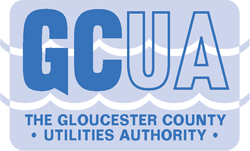Policy and Procedures For Use Of G.C.U.A.
Septage Handing Facility
Waste haulers who wish to dispose of waste products into the GCUA septage facilities must adhere to the following policy and procedures:
1. Every waste hauler and/or customer who wishes to use or continue to use the GCUA septage handling facility will be provided with a copy of Chapter 15 of the Authority’s Pretreatment Rules and Regulations and will be required to sign and submit to the GCUA an Appendix G Billing and Fleet Information / Acknowledgement Form acknowledging that he/she has read and understands the rules, regulations and procedures of the GCUA
2. Each vehicle (whether a trailer, cab, container, or single-unit vehicle) that will use the GCUA facility must be listed on the form and the form returned to the GCUA. Each vehicle listed by the hauler will be issued a GCUA decal. GCUA decals will only be issued to those vehicles that have a current N.J. Department of Environmental Protection (N.J.D.E.P.) decal. The fee for each decal is $5.00. All vehicles will be required to have the GCUA decal displayed in order to continue using the GCUA septage facility. Haulers are encouraged to purchase GCUA decals for their entire fleet at one time.
3. Hauler Certification Forms will be provided by the GCUA and can be obtained at the Authority’s business office Monday through Friday, from 9:00 a.m. to 4:00 p.m. In order to ensure proper billing, the following procedures must be followed:
a) Correct forms must be used for each load.
b) Each form must be filled out COMPLETELY, including account/decal number, which should be indicated in the upper right-hand corner of the form.
c) Loads CANNOT be mixed.
d) Forms must show type of waste being delivered. Failure to indicate the type of waste or designating more than one type of waste on a hauler form will result in the entire load being billed at the highest rate.
e) Haulers must also submit to the GCUA an IRS Form W-9, Request for Taxpayer Identification Number and Certification
4. Truck Capacities : All customers will be billed on the rated gallon capacity of the container. This volume is identified on the container as part of its N.J.D.E.P. registration. GCUA may require additional certifications as to the rated volume of the tank truck or container. A hauler may opt to be billed on a weight basis (converted to gallons using a conversion factor of 8.34 pounds per gallon).
5. Grease Facility: GCUA’s grease facility will accept grease from any location. Restaurant grease and grease from wastewater treatment plants do not need prior approval, however, grease from an industry of any sort requires a sample and analysis delivered to the GCUA for determination of acceptability. It is a violation of GCUA Rules and Regulations to mix grease and septage in the same load.
6. Billing: All customers will be billed in the first week of every month for the previous month’s discharges. The bills will reflect the type of gallonage and breakdown of charges for each gallonage. Any payments received in that month will also be reflected.
7. Interest : Any bills that remain unpaid after the 15th of the following month will be charged interest back to the date of the billing. Interest is charged on a daily basis at a rate of 18% per annum.
8. Non-Payment : If payment is not received by the 15th of the following month, use of the facility will be terminated until payment is made in full. The GCUA reserves the right to make the determination which would prohibit a hauler from using GCUA’s facility on a permanent basis.
9. Hours : Operating hours for the septage receiving facility are as follows:
Monday-Friday: 7:00 am – 2:30 pm
Saturday: Closed
Sunday: Closed
After hours emergencies call Shift Supervisor at 609-352-0367.
10. Speed Limit : The GCUA has a long-standing and enforceable speed limit of 10 miles per hour at the facility. Any driver not adhering to GCUA policy on road speed will be prohibited from using the facility in the future.
11. Driver Sign-In : All drivers are required to sign-in at the septage building each time a load is delivered to the facility.
Any questions regarding these procedures should be addressed to Dixie Kolman at
(856) 423-3500.
